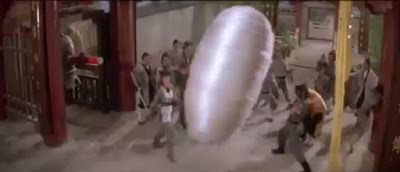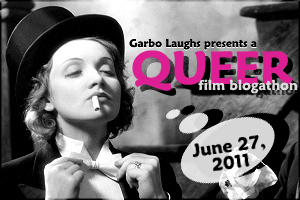The Shaw Brothers were the eight hundred pound gorilla in Hong Kong filmmaking for over twenty years. That began to change when two executives from the Shaws, Raymond Chow and Leonard Ho, left the company to start their own studio. That studio, Golden Harvest, would radically change the way films were made in Hong Kong and were the first Hong Kong studio to break into the world market. Their business model was drastically different from the Shaws, who ran their studio like an old style Hollywood movie factory. Golden Harvest, by contrast, decentralized production and contracted with independent producers. Their biggest coup was hiring Bruce Lee when the actor turned down a standard contract from the Shaws. Golden Harvest turned Lee into an international superstar, and Enter the Dragon, co-produced with Warner Brothers, was a global hit, one that defined the martial arts film of the 1970s. Perhaps more importantly, though, Golden Harvest was ground zero for the Hong Kong New Wave of the 1980s. They were the home of Jackie Chan and Tsui Hark. Tsui Hark in particular remade Hong Kong filmmaking in his own image. His film, Zu Warriors of the Magic Mountain is a watershed Hong Kong movie that finds the director seemingly making up a new cinema paradigm as he goes along.
The Shaws, for their part, were slow to react. When Tsui Hark and Ching-sui Tung were sending up their rockets, the Shaws began to seem quaint. They were entrenched with the way they'd always done things and by the time they made tentative efforts to embrace the new, it was too late. Still, their efforts from the mid eighties right up until they ceased production entirely in 1985 are chock full of oddities. This is where the most batshit insane Shaw movies originate, films like Human Lanterns and Holy Flame of the Martial World, in which the Shaw methods are mashed up with the fantasias of the New Wave. Such a film is The Bastard Swordsman (1983, directed by Lu Chun-ku), which closed out our local program of kung fu from the Shaolin Film Archives. The Bastard Swordsman incorporates most of the tropes of late Shaw Brothers, but it interweaves them with special effects, lots of wire fu, and a generally absurd premise that all come to a head in a climax that ringmaster Dan Halsted promise would make your head explode.
He wasn't kidding.
The plot of the movie finds one Yun Fei Yang taking on all the shit jobs at a kung fu school run by the Wu Tang clan. He's the object of scorn and bullying by the other students. The only person at the school to look kindly upon him is the daughter of the school's kung fu master. The master, for his part, is preparing for a kung fu duel he must fight every ten years. The stakes are the survival of his clan, and he knows he is sure to be defeated by his rival. He is duly defeated, and given two years to improve himself for the next duel, else the Wu Tang clan will be desolved. Meanwhile, an itinerant swordsman accompanies the master back to the school and ingratiates himself with the clan's leadership. Yun Fei Yang, meanwhile, is secretly developing his kung fu under the tutelage of a secret master. Yun's heritage derives from the clan leadership. He is the bastard son of the clan leader, and when the clan falls to the subterfuge of its enemies, it's up to him to rediscover the "silkworm" technique that will defeat their enemies.
This sounds pretty standard, as Shaw's plots go, and really, it is. But in its execution and imagery, well, that's a whole different ball of wax. Or silk, as the case may be. The "silkworm" technique involves spinning mystic silk to ensnare one's enemies and the film's final duel takes place inside a huge cocoon. The movie provides the novel pleasure of watching that cocoon bounce around the frame like a pinball. The way our young hero discovers this technique is perhaps just as weird, in which he channels the Yin energy from three of the clan's women to awaken his abilities. This is essentially a kids movie, so the filmmakers substitute special effects for the sexual congress that this might otherwise suggest. This movie is big on special effects. The imperfect "silkworm" technique allows the clan master to blast his enemies with bolts of light that wouldn't be out of place in a given science fiction movie.
For all its invention and jaw-dropping imagery, this is kind of a mess. Somewhere along the way, the screenplay forgets it's main villain after it substitutes another in his place. The burgeoning romance between our young hero and the daughter of the master is lost in the shuffle, too, as the final fireworks display pretty much obliterates concerns like "character" and "story." In their place is spectacle without any real meaning or any real tether to the real world. Don't get me wrong, I like fantasies (particularly kung fu fantasies), and I like this film well enough. But I wish it had found a way to tie its flights of fancy to the characters and plot it starts out with. The internet tells me that there was a sequel to this movie, so I have my suspicions that this is an incomplete story.
As with the previous films on the program, this was gorgeous on a big screen and great fun with an audience that "gets" it. I hope more programs like this one are forthcoming at my local art house. It was huge fun.




















No comments:
Post a Comment